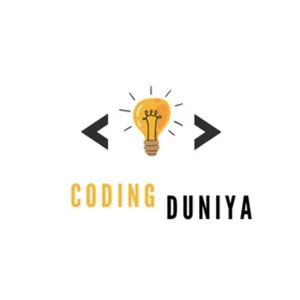Using the dynamic programming algorithm divides a complex issue into smaller, overlapping subproblems, which are then solved using a memorised table or array.
It is a helpful tool for resolving optimization issues and can be used in a variety of disciplines, such as operations research, computer science, and economics.
It is important to have a thorough understanding of the fundamental ideas and be able to use them to effectively solve problems if you are getting ready for a dynamic programming interview.
In this blog, we'll go over some of the most often asked dynamic programming interview questions as well as some preparation tips that can help you succeed .
You can improve your chances of passing a dynamic programming assessment by paying attention to these tips and putting up the required effort and time.
What is a dynamic programming interview?
With the help of simpler, overlapping subproblems, complicated problems can be solved using dynamic programming. In computer science, it is frequently employed, notably in the creation and evaluation of algorithms.
During a dynamic programming interview, questions on how to resolve problems with dynamic programming techniques may be presented. The interviewee will be asked to come up with a solution, assess the problem's time and space complexity, and perhaps even implement it in code.
Additionally, the interviewer may probe further into the broad concepts and uses of dynamic programming
We know that you are looking for ways on how to prepare for a dynamic programming interview. To help you out more, we have listed some important tips.
Check out below!
Tips to prepare for Dynamic Programming Interview
Here are a few tips to assist you in getting ready for an interview on dynamic programming:
- Learn the fundamentals of dynamic programming, such as the various problems it may be used to solve as well as the main ideas and methods.
- To comprehend dynamic programming more fully, practise resolving problems on your own. You can increase your confidence and problem-solving abilities by doing this.
- Review typical dynamic programming interview questions, then practise your responses. This might assist you in figuring out the kinds of queries you might encounter and the best way to organise your responses.
- Learn how to implement solutions from dynamic programming in code, and get practise creating effective, concise code that explains your solution.
- Be able to describe how to optimise dynamic programming solutions while reviewing the complexity of time and space of the solutions
- Practice coding and problem-solving under time constraints because you might be asked to do so during an interview.
- You can use the following resources to get ready for an interview in dynamic programming:
- Numerous dynamic programming as well as algorithm design courses are available online on platforms like Coursera and Udemy
- Many dynamic programming practise problems are available on competitive programming websites like LeetCode and HackerRank, which can help you improve your skills.
- Dynamic programming and other algorithm design strategies are thoroughly covered in books like "Introduction to Algorithms" written by Mr.Thomas Cormen and "Dynamic Programming" written by Mr.Richard Bellman.
- Some YouTube channels like William Fiset and Algorithms Illuminated cover Dynamic programming as well as other algorithms in their videos.
- You can effectively get ready for the interview on dynamic programming by utilising these tools and investing the necessary time and effort.
To help you get the best efficiency results, we have listed some of the most asked questions to prepare for a dynamic programming interview.
Most asked Dynamic programming interview questions
Here are some most asked dynamic programming interview questions along with some responses:
1. How can you tell if an issue can be solved using dynamic programming?
Searching for overlapping subproblems is one method for figuring out whether an issue lends itself to a dynamic programming solution. Dynamic programming may be an option for solving the issue if it can be divided into smaller, overlapping subproblems.
2. Can you give an example of a problem you might tackle using dynamic programming?
One example can be of finding the nth Fibonacci value. Making an array to hold the answer to each subtask, starting with the basic instances of Fibonacci(0) and Fibonacci(1), is one technique to tackle this issue using dynamic programming. Then, by using a loop to repeatedly traverse through the array, we may solve each subproblem by applying the answers to the subproblems that came before it. Also, this is one of the most commonly asked array coding interview questions.
3. How do you choose which subproblems in dynamic programming approach to tackle first?
The effectiveness of dynamic programming approaches can be affected by the sequence in which subtasks are resolved. A bottom-up technique often solves subproblems in a particular order, beginning with the smallest and heading up to the largest. This enables smaller subproblem solutions to serve as the cornerstones for larger subproblem solutions.
4. Can you give an example of an issue that can be resolved without the use of recursion but with dynamic programming?
The LCS (or Longest Common Subsequence) problem serves as an illustration of a challenge that can be resolved without the need of recursion utilising dynamic programming. Finding the longest character sequence shared by two or more strings is the goal of the LCS issue.
5. How do you proceed when a dynamic programming issue has several solutions?
A dynamic programming issue occasionally has more than one solution that yields the best outcome. You can use a backtracking strategy to find every potential solution by retracing our steps across the solution array. To choose a particular solution, it is also possible to alter the issue or even the dynamic programming strategy.
Conclusion
Finally, in order to effectively address problems, it is critical to have a firm grasp of the key principles of dynamic programming.We hope with the above mentioned tips, you can excel in cracking your interview.
So,start your preparation by solving dynamic programming interview questions and get ready today!

